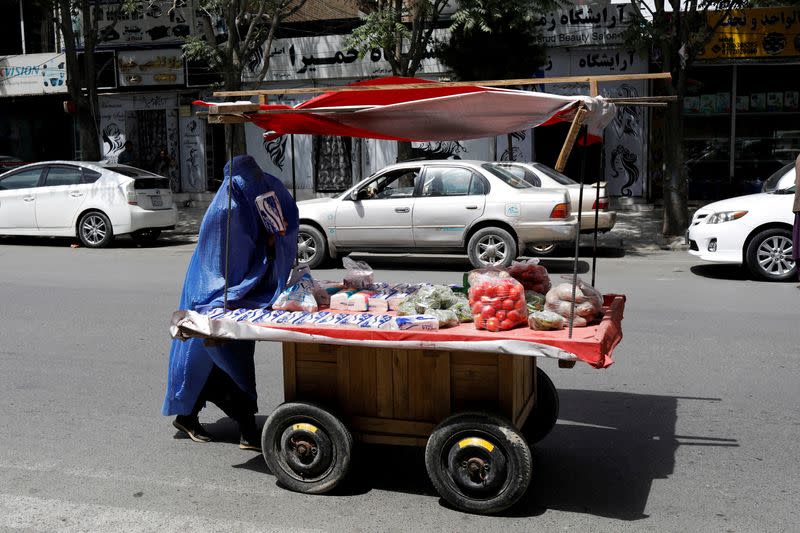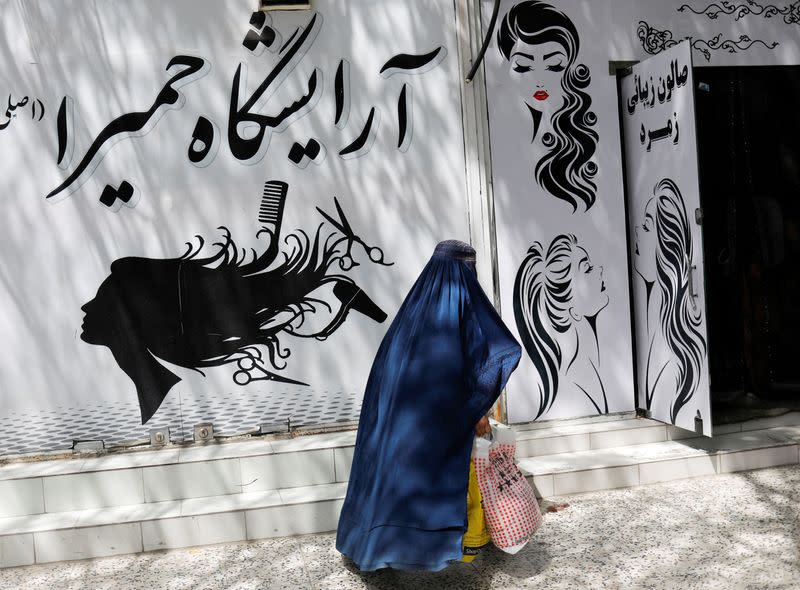Afghan women turn to entrepreneurship but struggle to access capital
By Mohammad Yunus Yawar and Charlotte Greenfield
KABUL (Reuters) - Female-led businesses now represent an economic lifeline for Afghan women living under Taliban restrictions, but face a series of problems accessing capital and markets, a United Nations Development Programme study released on Wednesday showed.
The UNDP found that 41% of 3,100 Afghan female entrepreneurs surveyed had to take on debt but just 5% of them had been able to gain credit through a bank or micro-finance institution, instead mostly relying on lending from friends or family members.
Respondents also reported restrictions hampered their operations, with over 70% saying they were unable to travel to a local market without a male guardian.
The Taliban have not formally banned women from work but have barred many Afghan female aidworkers, shuttered beauty salons, which employed tens of thousands of women, and limited women's movement and work in many institutions without a male guardian.
That has caused female formal employment - already low even before the Taliban took over in 2021 - to plummet, according to international development and labour organisations.
However female entrepreneurship has continued and some Taliban officials, including the commerce minister, have said their administration wants to support female businesses, many of which employ women in carpet weaving, handicrafts, dried fruit and saffron production.
"Women have long been the driving force behind the welfare of households in Afghanistan and play a crucial role in sustaining local economies," said Stephen Rodriques, UNDP's Afghanistan Resident Representative in a statement accompanying the study. "They need international support ... the future of Afghanistan depends on them.”
Sadeqa Sadiqyar, a member of the Afghan Women's Chamber of Commerce and Industry in western Herat province said her fruit snack business employed eight women and had managed to open a second branch since 2021.
However, she said her business was not reaching its potential in part due to competition from cheap imports and a lack of credit access.
"A challenge we face is the lack of financial support or resources; if organizations could assist us with financial issues, we could create more job opportunities for women and even export our products abroad," she said.
(Reporting by Charlotte Greenfield in Islamabad and Mohammad Yunus Yawar in Kabul; Editing by Alexandra Hudson)


